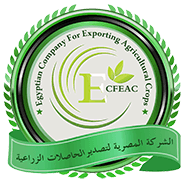Herbal Medicine in Ancient Egypt
Civilization in Ancient Egypt was not just pyramids and tombs, but involved all aspects of human life. Health and wellness was one of the arts most cared for by the pharaohs. Both doctors and magicians were involved in the field of medical care. From a holistic view, they conceived health and disease as an incessant struggle between good and evil. Most complementary medicine modalities originated in the ancient Egyptians. One of these modalities is phytotherapy, which is the topic that we are going to address in this review. Our comments depended on what the ancient Egyptians recorded in their medical papyri.
Not all Egyptian medicine was based on illusions, much of it was the result of experimentation and observation, and physical means complemented magical ones. In addition to spiritual healing and herbal medicine, the ancient Egyptians practiced massage and manipulation and made extensive use of therapeutic herbs and foods, but surgery was rarely part of their treatments (Zucconi, 2007).
According to Herodotus, there was a high degree of specialization among physicians (Halioua et al., 2005).
The Egyptians were advanced physicians for their time. They were masters of human anatomy and healing, mainly due to extensive mummification ceremonies. This involved removing most of the internal organs, including the brain, lungs, pancreas, liver, spleen, heart, and intestine (Millet et al., 1980).
To some extent, they had a basic understanding of the functions of the organs within the human body. His great knowledge of anatomy, as well as (in later dynasties) the crossing of knowledge between the Greeks and other cultural areas, led to a wide knowledge of the functioning of the organs and branched out in many other medical practices. Herodotus and Pliny were among the Greek scholars who benefited from this crossover and further contributed to ancient and modern medical records, reaching from the time of Ancient Egypt to the modern era (Sanders, 1963).
The ancient Egyptians were as familiar with pharmacy as they were with medicine. According to historical records, ancient Egyptians involved in the medical and pharmaceutical profession used to recite certain incantations while preparing or administering medicine. They were also familiar with the preparation of drugs from plants and herbs such as cumin, fennel, caraway, aloe, safflower, cola, pomegranates, castor, and linseed oil. Other drugs were made from mineral substances such as copper salts, common salt, and lead. Eggs, liver, hair, milk, horns, and animal fat, honey, and wax were also used in the preparation of medicines (Rosen, 1979).
In this review, we highlight some of Ancient Egyptian medicine, particularly herbal remedies and recipes, to show that they are, in fact, the basis of our natural medicine.



